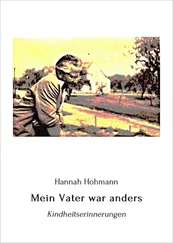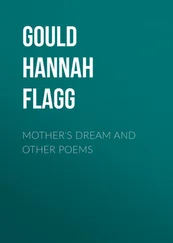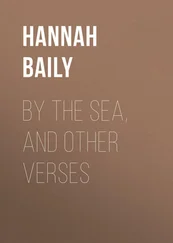—
I loved the prohibition against speaking, loved waking up before dawn and falling into sleep soon after sunset, loved the signs everywhere reminding us not to read or talk or wear clothing that revealed the contours of our limbs, reminding us that we were HERE TO MEDITATE. No other reason. The only point to my life at Shirmani was to notice my thoughts and sensations as I carried out basic acts of survival. I felt a kind of happiness I’d always believed was reserved for other, simpler people.
I thought about Jared a lot, of course. But I aggressively labeled the thoughts “thinking” until they dissolved, which made me proud of myself. I was not yet up to the task of liberating myself by examining every desire. But rejecting something does not make it disappear. During one of the half hours allotted daily for right speech — timely, useful, gentle, and true — I spoke with an Australian woman who had lived at Shirmani for fifteen years. She had recently gone to renew her visa; the authorities pressed her on her reasons for staying in Sri Lanka. “They treated me like I was criminal! And I’m not! I’m not!”
“Imagine how you’d feel if the man you loved told you to get the fuck out of his face when you were crying because he had his arm around another girl,” I unfortunately said out loud. Hardly timely, useful, or gentle. Silence had impaired my already feeble filtering abilities. The woman opened her mouth in a sad O. “I just mean — my boyfriend makes me feel like a criminal too. And I’m not. A criminal. So, like, I know how you feel.”
—
After several weeks at Shirmani, I started waking up with a little prickle of fear. What was I doing with my life? It seemed that I had been HERE TO MEDITATE for long enough; wasn’t I meant to experience other things, to make the best use of this trip halfway across the globe? I was in a recent war zone, assailed by humanitarian concerns. This was my chance to act on some of my depressing, lonely knowledge. I didn’t know what that action would be exactly, but I was sure I shouldn’t leave Sri Lanka without seeing the north, where most of the fighting had occurred. Only a couple of weeks remained before my flight home.
When I told the man in white I would be leaving for Jaffna the next day, he said, “If you are earnest, it does not matter where you go.” Idealistic words, but I trusted them. It was impossible not to, after spending time in this man’s presence. But how to be that single-mindedly earnest? Even the people who had been on retreat for many years — long-term meditators, they were called — had clearly not achieved this state of constant quietness and openness, free of all expectations. Certainly they were closer than I was. But when I watched them inching along the stone pathways and taking a full minute to bring their spoons from their plates to their mouths and breaking Noble Silence only once a week to discuss the need for more toothpaste or batteries, I knew that being a long-term meditator was one more thing I was not and would probably never be. One of the long-term meditators was a Buddhist nun from England who couldn’t have been more than twenty-five. She watched the sunrise in the same spot every morning, wearing the same clothes, with the same look of awe brightening her soft, round face. I envied her certainty. My personality is ill-suited to my ideals.
JAFFNA
A checkpoint marked the entrance to Sri Lanka’s northernmost peninsula. My bus had to wait for me to get off and register my passport with three leering soldiers. And then we entered a kind of desolation I had never known before. Dry fields were interspersed with army barracks that looked like little boys’ playthings, bags of sand painted green and brown piled before plywood huts. The bus slowed to let off a man whose lifeless right foot trailed the ground alongside him. He limped down a dirt road extending to the horizon. A rickshaw was parked outside the only store we’d seen for miles. A teenage girl crouched beside it, looking at her reflection in the tiny rearview mirror.
The dusty breeze coming through the bus’s open windows began to smell of salt, which meant we were nearing the coast. We stopped at a tea shop. The passengers mobbed the counter, demanding milk tea and fish rolls. A glass container with chocolate and crackers had a sign that said FOR MILITARY ONLY. As we continued into Jaffna, street signs, buildings, and vehicles coalesced into what felt like a large, developed city. Shamefully, I was disappointed. I’d been expecting a wretched warscape. The bus deposited us at a bustling roundabout. The first rickshaw driver I flagged down didn’t speak English. I opened my guidebook to the map of Jaffna and pointed out the guesthouse I’d chosen for its promise of a talkative owner “whose memories are as fascinating as they are tragic.” When the rickshaw turned down a narrow road leading to the sea, the landscape shifted so dramatically that I jerked upright, my hand covering my open mouth. The fruit stands and tea shops and buses had given way to detritus: bullet-riddled walls with no roofs. A baby’s cry rang out from behind an old sheet covering one of the gaping holes. A man in a plaid shirt and khakis stood in the yard of one of these bombed-out homes, talking on a mobile phone.
The guesthouse was at the end of this road, facing a dirty strip of sand before the flat sea. The words “Seaview Inn” were spray-painted on a piece of cardboard leaning against the house. The windows were boarded up. The driver cut the engine and smiled, waiting for his fare. Part of me wanted to get out and knock on the door of this decrepit house. Maybe there was someone inside; maybe his tragic stories would justify the mosquitoes and dirty sheets and fearsome bedtime aloneness. But I was too cowardly to take a risk that promised only unknown difficulties, no hope of fun or pleasure. I chose another guesthouse at random and showed it to the driver on the map.
The Purple Inn was clean and dowdy, owned by a plump family with whom I communicated through elaborate hand gestures punctuated by laughter. The only other guests were Sinhalese — Buddhist Sri Lankans from the South — who’d come to visit the part of their country that had been off-limits for so long. Overwhelmed by the day’s bustle after weeks at Shirmani, I got in bed before eight, missing the rowdy Europeans at Rose Land and the long-term meditators crunching biscuits. I pulled the sheet over my head and thought of Jared’s improbably comfortable bed, a futon on top of an old box spring. How he pressed me into the hard mattress when he came. His hoarse bleating in time to the spasms of his legs. The moment afterward, when he fell on me. The helplessness of his dead weight. Jared’s body unmediated by Jared. Sometimes, even if the sex was short and sudden and brought me little physical pleasure, the moment of Jared’s collapse was pure love, wanting only goodness for another person, feeling only gratitude for my capacity to provide that goodness. Other times, the moment was such sadness that I never wanted to have sex again, to avoid the awful loneliness of being left behind. Jared’s chest crushing my lungs and his shoulder smashed against my mouth. I rolled onto my stomach in the hard guesthouse bed, one hand on my breast and one hand between my legs. His penis falling out of me when he sighed, skin softening against my swollen opening.
It felt good to long for Jared, something accessible that also longed for me. Why couldn’t I be earnest alongside him? That’s what I was trying to say, in my profane way, to the long-term meditator who couldn’t get a visa: Even at a silent meditation center, it’s nearly impossible to feel reality, unadulterated by worries and preferences. What if I could do this in the context of intimacy — lean back again and again, return to the constancy of the breath, that other way of understanding my life? What if I could accept my helplessness every time Jared ordered one too many shots and then stayed out for days with his phone shut off? He would come back on his own, he always did. There was nothing I could do to force his return. Wouldn’t I rather bear the discomfort he caused me on my own than spend days obsessing and fighting and making up about it? I could just feel his absence, like the millions of other people feeling the pain of absence at that very second. Giving one’s life over to meditation explicitly was a kind of rejection, I told myself. I could have both Jared and a meditative life, I reasoned; I need not give up anything.
Читать дальше












